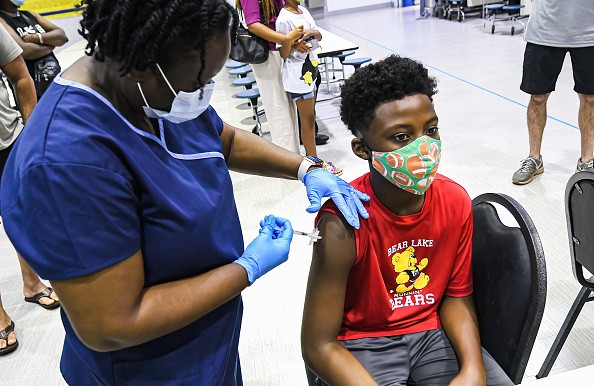Vaccine trials for COVID-19 involving children are expected to yield useful data by the end of 2021 finally.
In a report by Global News, the COVID vaccine trials for children, several of which is conducted by Pfizer, have already completed Phase 1. Pfizer is then scheduled to submit their findings to Health Canada. The second and third phases of the trials are still ongoing, all of which involve children under the age of 12.

Once submitted, the data from Phase 1 of the COVID vaccine trials will be evaluated by Health Canada and will be used to determine a final decision on deployment for young children. This is after they've already approved the use of the Pfizer COVID vaccine in youngsters aged 12-16 last May.
For now, Pfizer-BioNTech is still testing the vaccine in terms of overall safety and immunogenicity (the ability of the vaccine to provoke an immune response against the coronavirus).
It's worth noting that Pfizer BioNTech is the only vaccine maker that has applied for full licensure of their COVID shots for children younger than 12 years old. However, various reports have also cited Moderna and AstraZeneca as currently working on their own versions of vaccines for kids.
Vaccine Issues With Kids
Despite COVID vaccines already having been distributed to billions of adults worldwide, virtually no child under the age of 12 has gotten it. Surely, young kids aren't magically immune to the virus, right?
They aren't. Just like adults, they can get COVID-19 as well. However, the issues with giving children the COVID vaccine are well-documented. One of the biggest problems is that varying age brackets offer equally varied immune responses to vaccinated against the coronavirus. What's given to children six months old to 2 years old can't be given to kids aged 3 to 5 years old.
This is where the dilemma begins and ends, basically. If you give the young kids too little of the vaccine, they won't have enough protection against getting severely ill. Give them too much of the shot, and it's going to cause side effects that mere children can't brush off as easily as adults can, reports CNN. Just imagine how much of a handful a 2-year-old can be when he/she experiences fever and bodily pain from a COVID vaccine.
Scientists have a term when it comes to COVID-19 vaccine doses for kids: the "Goldilocks Dose." Finding the perfect balance of dosage in these younger people takes time. There's really no other way because children are not miniaturized adults. Their immune responses differ greatly from grown-ups, not to mention their way of handling the mental stresses of temporary vaccine side effects.
The Waiting Game
Until Pfizer and other companies finally manage to develop a safe vaccine for young children, the only way to protect the little ones is to inoculate as many adults as possible. Of course, keeping them away from potential COVID-19 hotspots and infected individuals is also critical.
This article is owned by Tech Times
Written by RJ Pierce




